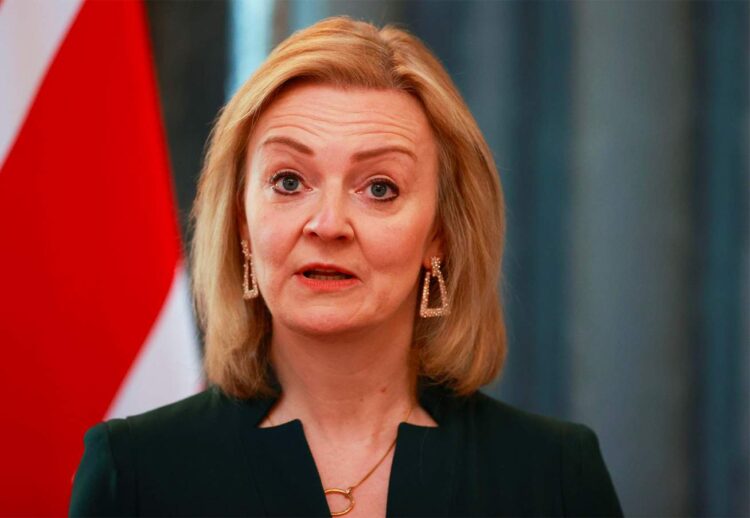By Ben Kerrigan-
Ms Truss told reporters at a news conference in which she took very few questions that “The way we deliver our mission has to change,” as she expressed sadness for her decision to sack her good friend Kwasi Kwarteng.
In a brief news conference from Downing Street, after news of her dismissal of Kwasi Kwarteng and her replacement of him with Jeremy Hunt, prime minister, Liz Truss vowed change the country for good, as she expressed an urgent need for her government to overcome the setbacks that has threatened the credibility of her leadership.
The Uk prime minister has had a torrid month in government, following a barrage of criticism in the press in the wake of economic policies that sparked uproar and a massive fall in business optimism.
Whispers among backbenchers to potentially stage a coup through submissions of no confidence letters in her government highlighted the frightening prospect of being kicked out of government before even settling in properly. She acted fast and decisively, but there are still questions as to whether it is too little too late.
But the prime minister is keen to convince the electorate that she has things under control, and will get Britain in the right direction through the choices she makes.
Ms Truss promised to raise the country’s corporate tax rate, reversing a plan that had been outlined in a set of measures that her government proposed last month.
“It is clear that parts of our mini budget went further and faster than markets were expecting,” Ms. Truss said, adding, “We need to act now to reassure the markets.”
In reference to her sacking of mr. Kwarteng, Liz Truss said “I want to be honest, this is difficult” after sacking her chancellor and reversing key policies of her government’s growth plan.
Ms Truss said: “The way we deliver our mission has to change.”
She said Mr Hunt would deliver the medium-term fiscal plan at the end of the month.
Ms Truss also confirmed the government would raise corporation tax next April to 25% from 19%, despite pledging not to do so in the mini-budget.
She said Mr Hunt is “one of the most experienced and widely respected government ministers and parliamentarians, and he shares my convictions and ambitions for our country
The reversal of the policy follows three weeks of turmoil after an announcement last month by the chancellor of the Exchequer, Kwasi Kwarteng, that sent the currency plunging and government borrowing costs soaring. Earlier Friday, Ms. Truss fired Mr. Kwarteng.
Asked on Friday afternoon about why she was staying in office when Mr. Kwarteng quit, she said, “My priority is making sure we deliver the economic stability that our country needs.”
Downing Street announced that the new chancellor of the Exchequer was Jeremy Hunt, a former health and foreign secretary. With Mr. Hunt considered a pragmatist and moderate, his appointment was designed to reassure financial markets.
The negative reactions in the markets and among politicians mde the change in direction inevitable, but the reversal amounts to a humiliating admission by Ms. Truss, whose promise to cut taxes helped her win the leadership of the Conservative Party in the battle to succeed Boris Johnson as prime minister, that she got it wrong.
Her promises and economic policies were flawed. As the crisis gathered pace, Mr. Kwarteng was forced to cut short a visit to Washington for talks at the International Monetary Fund and return on Friday to London.
Ms. Truss has been in power for less than six weeks, but on Thursday, the foreign secretary, James Cleverly, warned colleagues against trying to remove her, so early in her premiership, saying that “changing the leadership would be a disastrously bad idea.”
Mr. Kwarteng made his tax-cutting announcement on Sept. 23, and he and Ms. Truss had already been forced to retreat from one element of their proposal, the decision to cut income tax for the highest earners in the Uk.
The commitments to reverse a rise in national insurance rates and abandon a planned rise in corporation tax were the key planks of her leadership election campaign. In hindsight, they lacked validity.
Following the plummeting of the pound against the dollar and the rise in the cost of Government borrowing, opinion ratings for the tories have dropped. The prime minister wants to turn all the cynicism around.
Britain’s central bank, the Bank of England has intervened in the debt market, fearing that developments there could threaten some pension funds, which were particularly vulnerable, but planned to end that intervention on Friday, adding pressure to the UK government.

